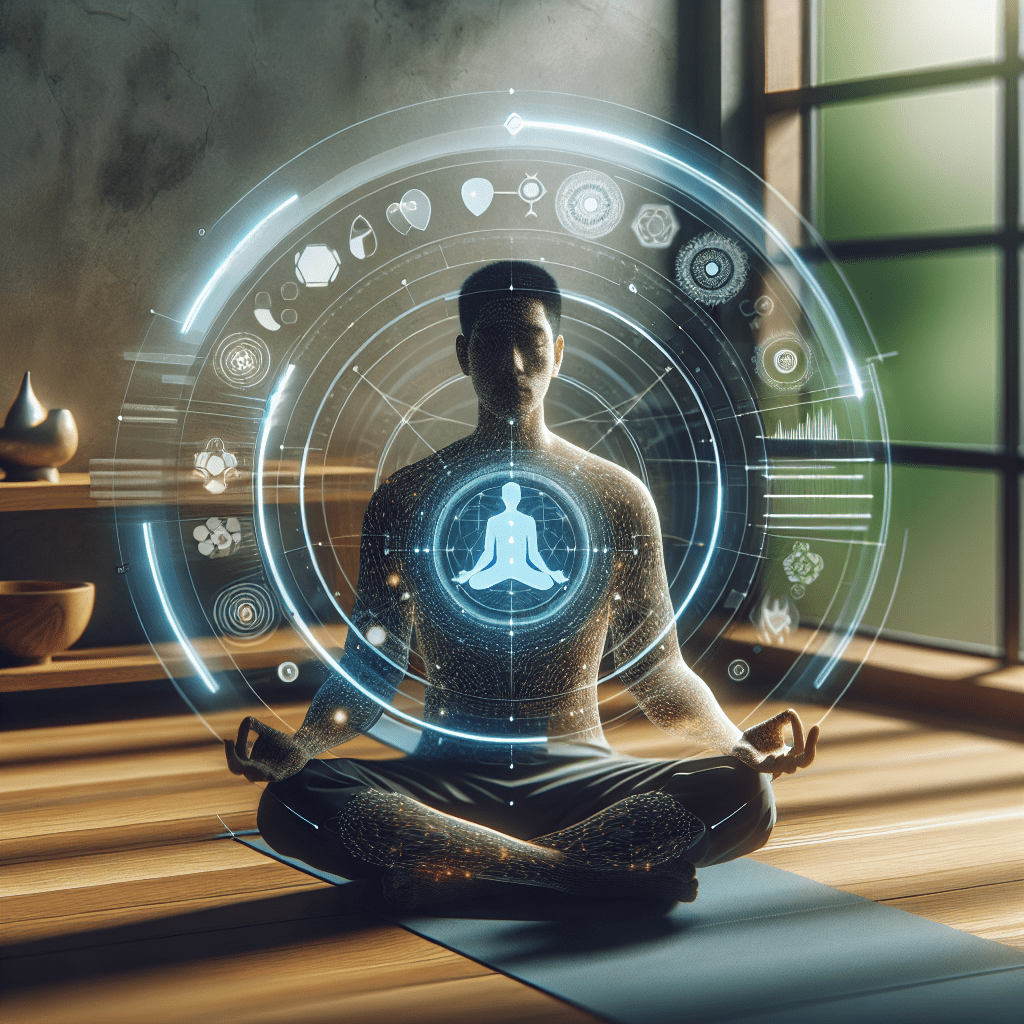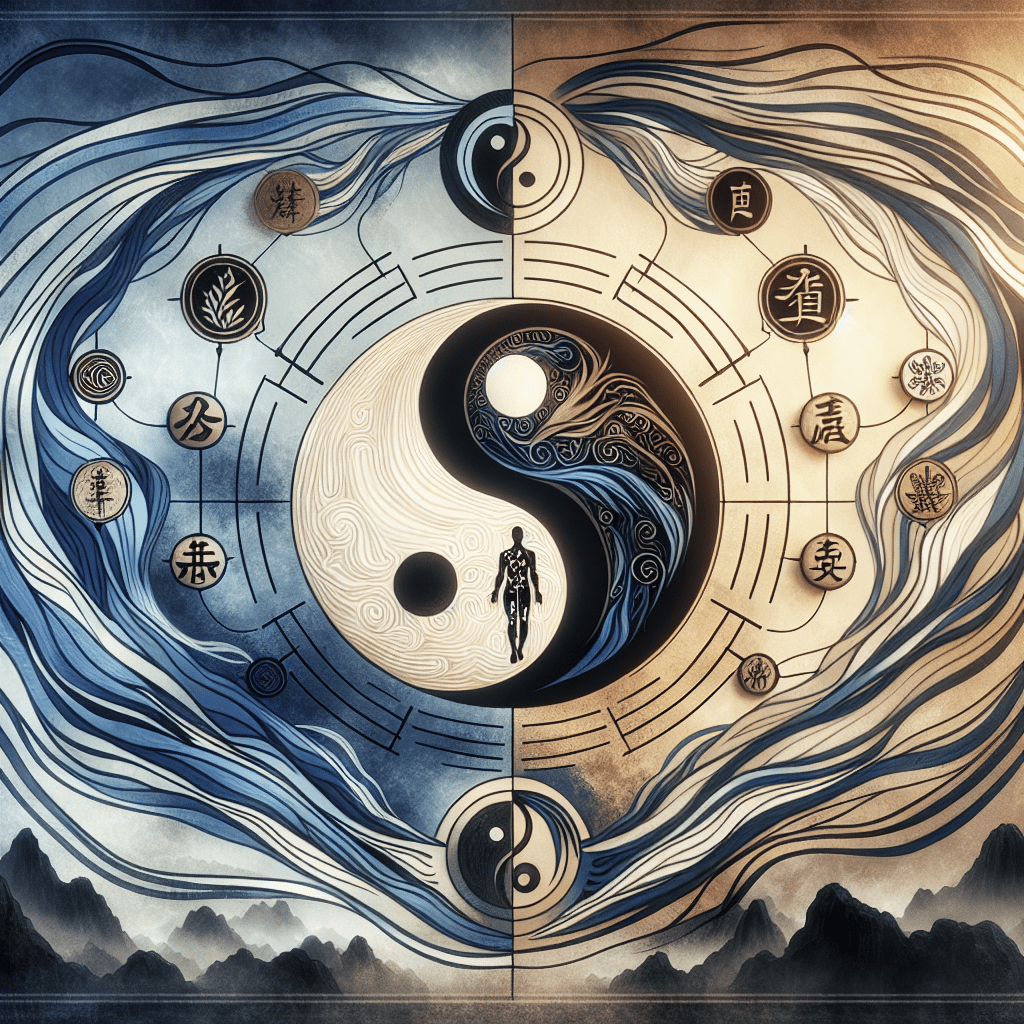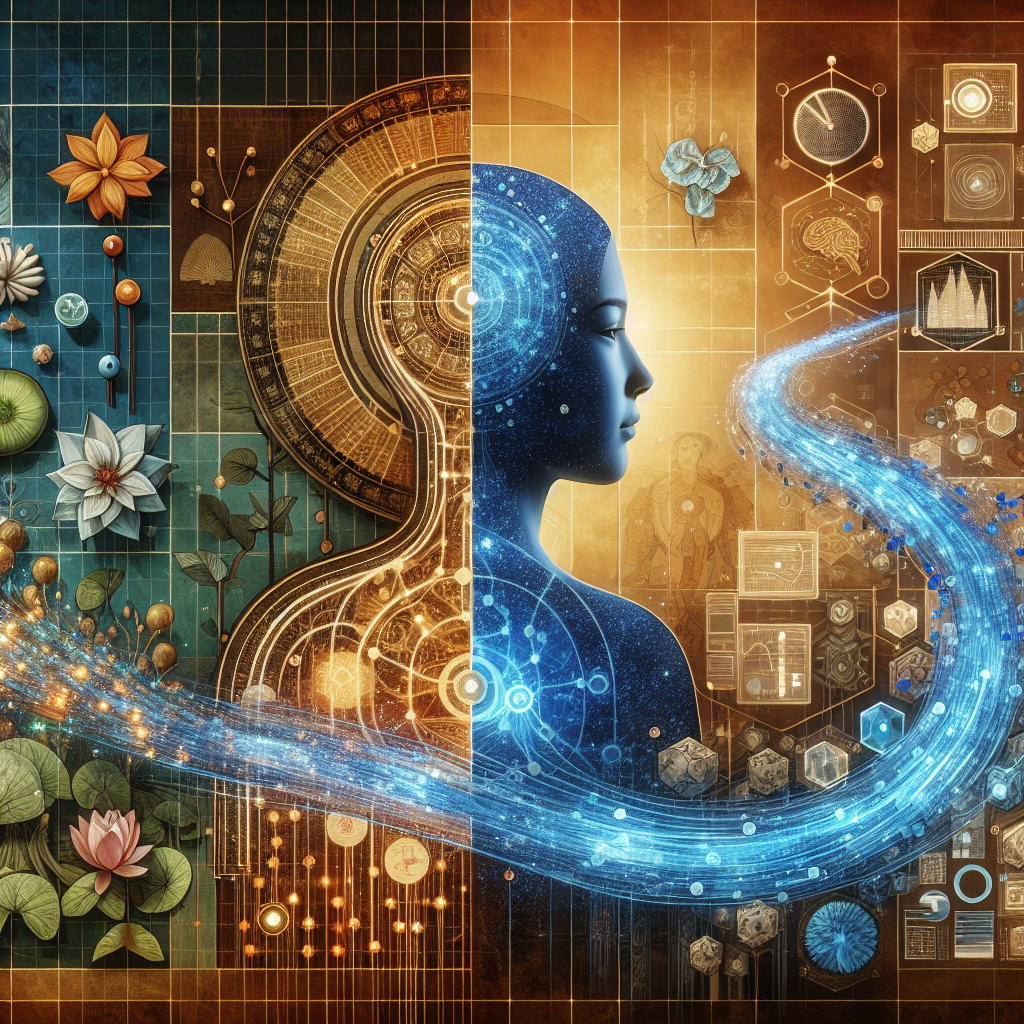In a world where technology touches every aspect of our lives, a fascinating evolution is taking place in the wellness space. Imagine having an ancient healer from the East, with thousands of years of medical wisdom, available at your fingertips 24/7 through your smartphone. This isn’t science fiction—it’s the reality of today’s virtual wellness coaches that blend time-honored healing traditions with cutting-edge artificial intelligence.
These digital healers are revolutionizing how we approach personal health, offering personalized guidance that draws from Eastern medical philosophies while leveraging the computational power of modern technology. But can an app really replace the human touch of a traditional healer? Could this fusion of old and new be the answer to our modern wellness challenges?
“Virtual wellness coaching represents a bridge between ancient wisdom and modern convenience,” says Dr. Lisa Chen, a proponent of integrated health approaches. “It’s not about replacing human connection, but about making these valuable traditions more accessible and personalized through technology.”
The rise of virtual wellness coaches comes at a time when many people feel disconnected from traditional healthcare systems that often treat symptoms rather than addressing root causes. As we search for more holistic solutions, these digital platforms offer an intriguing alternative that honors ancestral knowledge while embracing innovation.
Eastern Medicine: Ancient Wisdom for Modern Times
Traditional Chinese Medicine, dating back more than 2,000 years, operates on the principle that vital energy (qi) flows through meridians in the body. When this energy becomes blocked or imbalanced, illness results. TCM practitioners use techniques like acupuncture, herbal medicine, and qigong to restore proper energy flow. Similarly, Ayurveda, India’s 5,000-year-old healing tradition, categorizes people into constitutional types (doshas) and prescribes personalized diets, herbs, and lifestyle practices to maintain equilibrium.
“What makes Eastern medicine so valuable is its emphasis on treating the individual as a whole,” explains Maria Lopez, a virtual wellness coach specializing in Ayurvedic principles. “It’s not just about eliminating symptoms but understanding your unique constitution and creating harmony in all aspects of life.”
Digital platforms have ingeniously adapted these complex systems for the modern user. Virtual wellness coaches now incorporate questionnaires based on Eastern diagnostic methods to determine your constitutional type. They analyze your responses through sophisticated algorithms that mimic the assessment process of a traditional practitioner, identifying imbalances and offering tailored recommendations.
For instance, a virtual wellness coach might determine you have excess “pitta” (fire element) in Ayurveda, then suggest cooling foods, herbs, and practices to restore balance. Or it might identify a qi deficiency according to TCM principles and recommend specific exercises and dietary adjustments. This digitization of ancient practices makes Eastern wisdom accessible to people who might never have the opportunity to consult with a traditional healer.
How Technology Enhances Traditional Healing
“AI can analyze patterns and connections in health data that humans might miss,” notes Dr. James Wilson, a specialist in healthcare technology. “When applied to traditional medical systems like TCM or Ayurveda, it can help identify subtle imbalances and suggest highly personalized interventions.”
Modern virtual wellness coaching platforms use AI in several groundbreaking ways:
Personalized Assessment: Through sophisticated questionnaires, photo analysis, and even voice pattern recognition, AI can determine your constitutional type according to Eastern medicine principles. This digital diagnosis forms the foundation for personalized recommendations.
Adaptive Learning: The most advanced virtual wellness coaches actually learn from your feedback and progress. If a particular herb or practice isn’t working for you, the AI adjusts its recommendations—mimicking the way a human practitioner would refine their approach over time.
Predictive Analytics: By tracking your habits, symptoms, and external factors like weather and season (important in Eastern medicine), AI can predict potential imbalances before they manifest as illness, enabling truly preventative care.
Community Insights: Some platforms anonymously aggregate user data to identify patterns in how different constitutional types respond to various interventions, continually improving their recommendations based on real-world outcomes.
Take EASTCHI AI, for example, which analyzes users’ constitutional types through Five Element Theory and provides seasonal dietary guidance based on Eastern principles of food as medicine. This system doesn’t just regurgitate ancient wisdom—it dynamically applies it to your unique situation, considering factors like your location, the current season, and your ongoing feedback.
“Virtual wellness coaching makes personalized health guidance accessible to everyone,” says wellness technology researcher Sarah Johnson. “Someone in rural America can now benefit from Eastern healing traditions that might previously have been available only in major cities or to those who could afford specialized practitioners.”
The convenience factor cannot be overstated. Instead of scheduling appointments weeks in advance or traveling to specialists, users can check in with their virtual wellness coach anytime, anywhere. This regular engagement promotes consistent healthy habits—the cornerstone of prevention in Eastern medicine traditions.
East Meets West: The Power of Integrated Approaches
“Western medicine excels at acute care and scientific research, while Eastern traditions offer sophisticated frameworks for prevention and holistic well-being,” explains Dr. Michael Chang, who specializes in integrated medicine. “The future of healthcare lies in bringing these perspectives together.”
Consider the case of Jennifer, a marketing executive who struggled with chronic digestive issues for years. Traditional medical tests showed no clear diagnosis, and medications provided only temporary relief. Through a virtual wellness coach, she discovered her constitution aligned with a “Vata” imbalance in Ayurveda, characterized by irregularity and sensitivity.
“The virtual coach suggested specific warming foods, eating schedules, and stress-reduction practices tailored to my constitution,” Jennifer shares. “Within weeks, my symptoms improved dramatically. But what I found most valuable was that the app didn’t tell me to stop seeing my regular doctor—it helped me understand how to integrate Eastern practices with my conventional treatment.”
This integration extends beyond physical health. Many virtual wellness coaches incorporate mental and emotional well-being into their recommendations, recognizing the mind-body connection that Eastern traditions have emphasized for millennia. For users dealing with anxiety or stress, these platforms might suggest meditation techniques alongside nutritional adjustments, viewing these challenges through a holistic lens rather than as isolated symptoms.
Research supports this integrated approach. A 2022 study published in the Journal of Alternative and Complementary Medicine found that participants using a virtual wellness coach that combined Eastern and Western approaches reported greater improvements in overall well-being than those using either approach alone. The study noted particularly strong outcomes for chronic conditions like insomnia, digestive disorders, and stress-related symptoms.
“Virtual wellness coaches are uniquely positioned to bridge these traditions,” notes Dr. Chang. “They can process vast amounts of information from both Eastern and Western medical literature, identifying connections and complementary approaches that might benefit individual users.”
The Future of Personal Health: Tradition Meets Innovation
“What’s exciting about this development is that it’s not about replacing human practitioners but expanding access to valuable health traditions,” says digital health expert Thomas Wang. “Virtual wellness coaches can serve as an entry point, helping people discover approaches that resonate with them, which they can then explore more deeply with in-person practitioners if desired.”
This inclusive model recognizes that health is not one-size-fits-all. Each person’s path to wellness is unique, influenced by their constitution, lifestyle, environment, and personal preferences. Virtual wellness coaches honor this individuality, offering guidance tailored to your specific needs rather than generic health advice.
For those curious about exploring this fusion of tradition and technology, platforms like EASTCHI AI provide an accessible entry point. By analyzing your constitutional type through the lens of Eastern medicine’s Five Element Theory and providing personalized nutrition and lifestyle recommendations, such systems make ancient wisdom practical for modern life.
“The most powerful aspect of these virtual wellness coaches is how they empower individuals to take an active role in their health,” notes holistic health educator Maya Patel. “They educate users about their unique constitution and provide tools for maintaining balance, fostering a deeper understanding of personal well-being.”
As we continue to face complex health challenges—from chronic disease to the stresses of modern living—perhaps the answer lies not in choosing between ancient wisdom and modern science, but in embracing both. Virtual wellness coaches represent this middle path, honoring time-tested traditions while leveraging today’s technology to make these approaches more accessible, personalized, and effective.
Could this digital healer be your answer? Only you can decide. But in a world where healthcare often feels fragmented and impersonal, these virtual wellness coaches offer an intriguing alternative—one that sees you as a whole person rather than a collection of symptoms, and empowers you with personalized wisdom drawn from both ancient traditions and cutting-edge technology.
The healing practices that have sustained humanity for thousands of years haven’t lost their relevance—they’ve found a new expression in the digital age, ready to support your journey toward balance and well-being. Perhaps it’s time to explore what this fusion of East and West, ancient and modern, might offer your unique path to wellness.



